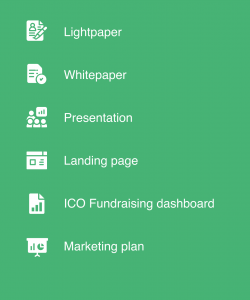Content
Now that new routines have been established from working from home for at least several weeks, what is the appeal of coming back into the office? On the one hand, most people have proven that they can work from home and keep up on their daily tasks. Also, many have realized that meetings originally thought to only be effective in-person can still be effective virtually. We are now seeing circumstances where a firmware developer takes a hardware device home with them. However, sometimes this developer is not the one who normally flashes or updates the firmware. How do we automate that whole process of getting the firmware onto a device that’s under development and test?
PAM solutions that support more modern application-to-application password management approaches can help DevOps teams secure both human and non-human identities even in the remote work environment. Methods such as secure shell keys, ephemeral tokens and delegated machine credentials can seamlessly incorporate PAM into the DevOps pipeline. Ensuring secure access that improves an organization’s security posture and agility can keep development, operations and security teams on the same wavelength without compromising speed or security. To help support knowledge sharing across a remote team, first ensure you communicate all application metrics clearly so every member of the team understands and is aligned on projects and next steps. Dashboards can help in this arena, collecting and converting key data points into visuals.

While the option to work from home was available at many organizations before the COVID-19 pandemic hit, this way of working has become a forced reality in certain industries. DevOps and the increased agility it has brought to companies can present an opportunity in the post-pandemic era. From a DevOps standpoint, technology is meant to eliminate the numerous bottlenecks that come with software development. Without it, development couldn’t move forward; yet, rushing to adopt technologies just for the sake of it, especially when it comes to enabling remote work could lead to subpar architectures and poorly followed best practices.
Devopsdigest
The good news for DevOps teams is that even at companies where other employees have to report to an office, they are more likely to work remotely, or to have experience collaborating with offshore development teams in other parts of the world. Most IT management tools can be accessed through a web interface, especially those for public cloud. The COVID-19 pandemic has changed working conditions in a profound way. Budget cuts and new workflows owing to a remote structure are causing new strains on DevOps teams.
If you’re being dragged back to the office on some days, beware which days you choose. Hybrid working is great and all, but the wisdom of the in-crowd says, we’re told, not on a Friday. Welcome to The Long View—where we peruse the news of the week and strip it to the essentials. Check Point Software Technologies announced a new Managed Security Service Providers Program that removes administrative burdens and empowers a partner service-led approach. JFrog released JFrog Advanced Security – a binary-focused, DevSecOps solution providing holistic security coverage from any source to any destination.

In the face of these challenges, the use of automated technologies and approaches across the entire development cycle must become a priority for improving operational efficiency. For example, more tightly integrating security into developer workflows will greatly increase the frequency of security scanning. This impacts load on the physical server and pricing, as many on-premises solutions are sold on a per-server basis with premium charges for concurrent scanning and/or high availability pairing. SaaS application security solutions, as opposed to on-premise solutions, can also be easier to manage and can more effectively scale as organizations embrace modern software development life cycles.
… For towns that don’t have the budget to attract a whole office … the modest impact of bringing in a handful of remote tech workers can be balanced by the much smaller investment required. Outpost24 announced the introduction of its Penetration Testing as a Service solutions to the North American market to better empower businesses to understand and address threats in their web application attack surface. Tools that can be easily integrated into workflows and automatically generate results — while enabling team collaboration — are going to be embraced. Tools that make developers’ jobs more difficult will likely be quickly disregarded.
Increasingly distributed work therefore also increases exposure to both external and insider attacks and data breach threats, if DevOps and DevSecOps teams cannot put countermeasures in place. Run-time auditing and compliance checks through CIS benchmarks, secrets auditing, and custom container audits are basic security requirements that are all the more important for distributed workforces. These strategies will help secure communications and extend the safeguards that protect enterprise networks in distributed work-from-home environments.
Eventually, however, companies and economies will reopen, and while many of those logistics have yet to be determined, one thing is certain — remote work is here to stay. Hybrid and remote work can break down an employee’s sense of belonging and connection to a group and can negatively impact team cohesion. This is especially true for newer team members who may have experienced a fully remote onboarding process during the pandemic. While Zoom socials can be enjoyable and help coworkers reconnect, they cannot entirely replicate the sense of community that in-person interactions provide.
Prioritize opportunities to connect in person, especially if they are related to onboarding, and encourage collaboration and fun to create a vibrant work environment. This adds value for each individual employee as well as to the business. Additionally, make active plans to engage employees both in-person and remotely – with a greater emphasis on the remote end of this connection.
Best Ways To Support Devops Teams In Remote Work
Your cloud infrastructure is the backbone of any remote support plans for DevOps teams. Migrating operations to the cloud is the biggest enabler in making sure your team is not tied to any physical location and can do their jobs without relying on a single data center or headquarters. For example, deploying your open source data infrastructure in public clouds not only makes it easier for team members to access the data but also increases developer and operational velocity, which accelerates application innovation.
- Yet, it has also brought opportunities for enhanced, cross-border collaboration.
- Refining and expanding your cloud infrastructure will help you make that transition and continue supporting an in-office, remote or hybrid team in the future.
- Local governments are offering people willing to move up to $12,000, … subsidized gym memberships, free babysitting and office space.
- Software Delivery Shield reduces security risks across the development pipeline — but it also increases developer productivity, …
- Business leaders need to recognize that to achieve their digital transformation goals, their company culture must be empathetic to those on the IT team who often work around the clock.
For some tech companies, moving from in office work to work from home was not that difficult. They already had the systems in place to allow seamless communication, and collaboration, as well as easy-to-use cloud accounting and invoicing systems. In fact, many DevOps teams had been working remotely for years before the pandemic. They were proficient at collaborating with other colleagues who work remotely while keeping in touch with colleagues who work on premise.
Coronavirus Forces Switch To Remote Work For Devops Teams
I’ve received many notes and LinkedIn invitations from colleagues and others to meet for a virtual coffee chat, for example. Pre-pandemic, I would never have had time to meet face-to-face with as many people. But Zoom calls are free (even a 40-minute call is more than enough time for a great introduction or conversation) and provide an opportunity to network and demonstrate your skills with more people. Just be sure to do your research first, and don’t forget to send a thoughtful personal note after each meeting.

Nowadays, the number of companies that are open to remote work is growing, and this new, digital workforce has had an impact on DevOps. One of the main benefits of remote working is the potential to attract high-quality talent from a more diverse pool of candidates. This is especially true for tech companies looking to stay competitive by recruiting top-notch engineers and IT professionals. DevOps teams can improve communication by investing in the right tools for the right job.
Tips To Cope With Remote Work For Devops Teams
However, the pressures to do more with less will push many to embrace cloud-based security solutions. It is also more important than ever to connect with employees emotionally and display empathy for any personal challenges they may be facing. Remember that the lines between home https://globalcloudteam.com/ and work have blurred, and at-home stressors may be more likely to impact work performance than when an office enabled more separation and compartmentalization. The foundation of DevOps involves removing barriers between teams, enabling them to successfully build and develop.
Forty minutes is enough time to make brief introductions and build relationships. That being said, nine months into the pandemic with remote work and even some DevOps teams are finding it a challenge to work efficiently. The following are four remote work challenges for DevOps teams and ways to solve them.
Among enterprise DevOps teams, there’s a mixed outlook on the impact of social distancing and remote work. IT pros know they can fall back on IT automation tools that require little coordination and manual intervention to run critical systems. But many Agile and DevOps practices had been developed around daily or weekly team meetings in front of shared whiteboards, and organic conversations among co-located employees. An isolated workspace approach puts an end to the outdated notion that developers’ freedom of access and corporate security need to be competing priorities. Additionally, despite the success of remote work, many businesses — physical and digital — have been negatively impacted by the closure of economies and market downturn. Many organizations have cut budgets and reduced headcount, forcing security teams to do more with less.
As the new coronavirus disrupts communities and economies around the world, DevOps teams will need to adapt their practices to support remote work amid calls for social distancing. The new coronavirus pandemic will force most DevOps teams to work remotely and may also interfere with work schedules. Some start-ups and tech firms have begun doing away with Fridays altogether. … Bolt, a checkout technology company in San Francisco, began experimenting with no-work Fridays last summer and quickly realized they’d hit a winning formula. Employees were more productive … and came back to work on Mondays with new enthusiasm. Every remote worker these places successfully attract and retain is like gaining a fraction of a new factory or corporate office, with much less expenditure and risk.
Local Security Approvals
Remote DevOps workers need to closely monitor the quality of their work and test early and often in the development process. Technology moves fast, and speed is a must for companies who want to stay current in the changing ecosystem. Thus, DevOps’ main goal is to create a workflow that enables fast development with fast feedback loops. This may require employers to take the lead in helping their employees foster self-care. They should encourage DevOps employees to actively spend time with friends and family. They should be encouraged to get involved in activities outside of work.
According toHarvard Business Review, wellness is one of the newest metrics that companies will use to understand their employees moving forward. Enterprise leaders need to actively work to ensure mental health preservation tactics are part of their employees’ routine. If leaders don’t Remote work for DevOps faces new rules of work proactively take this step, employee burnout will likely increase. DevOps offers a perfect use case on how a remote environment can work, yet many organizations have fallen short as they struggle to stay connected and keep their employees motivated and on track with their goals.
Ways To Support Devops Teams In Remote Work
In 2021 and beyond, DevOps won’t only help end users but also impact companies and their internal processes. With DevOps’ help, companies will become much more agile and cross-functional, making smarter decisions with fewer risks. Organizations can address this by scheduling regular brainstorming sessions. Remote DevOps teams should be allowed to contribute to the project during these brainstorming sessions. Brainstorming sessions give everyone the power to share issues, concerns, and details of the project that affect them. One of the nice things about the pandemic is that it has eliminated time spent in travel.



